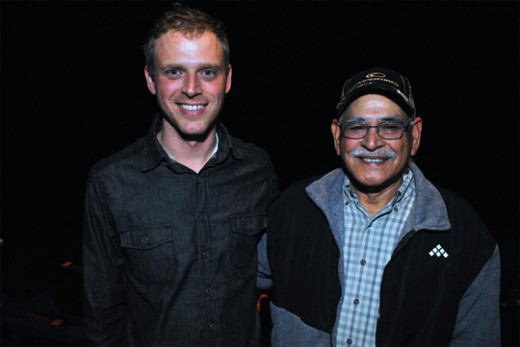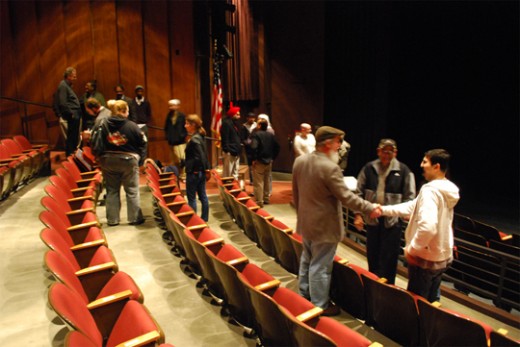
Relationships between the United States and Middle Eastern countries have been very poor over the last decade. Everyone knows about the wars over oil and democracy and everyone knows about 9/11. These terrible blemishes on our histories highlight the cultural intolerance that exists in the world. These are all highly visible events, but they are only the beginning.
You see, hardly anyone knows about the hate, cultural intolerance, and injustice that occurred locally only seven years earlier, on August 31, 1994, on Tierra Buena Rd. in Yuba City, CA. An American Muslim Mosque was burned to the ground and the persons responsible, two young local males, were never charged and can never be charged due to the six year statute of limitations on arson crimes.
A groundbreaking new documentary filmmaker, David Washburn, hopes to enlighten us on the events that occurred that August night, in his 27 minute film An American Mosque. He hopes his film will help “show the American Muslim community in a new light” and “help people receive diversity with an open mind and not be afraid of it.”

A premier showing of the film was held at the Yuba College campus in the main theatre on Saturday February 2, 2013 at 7pm. There was only the feeling of community and purpose as the theatre began to fill. Everyone was there: the filmmaker, community members, college students, and local officials all came together to view Mr. Washburn’s creation and honor those who were affected by the arson.
No guest was more honored than Mr. Khalid Saeed, the American Muslim farmer who donated the five acres of his grandfather’s land for the American Mosque to stand on. The community came together to make Mr. Saeed’s vision come true. $1.8 million was collected, mostly through donation, to build the traditional style Mosque. Community members worked together tirelessly to complete the project. So much hard work went into building this house of worship and Mr. Saeed was so generous that no excuse could be made for the arsonists except intolerance, ignorance, and indifference.
After viewing An American Mosque, I asked Mr. Saeed how he felt about it. He told me, “It was very informative. If this film could have been made earlier, this [arson] might not have happened.” He feels that the Mosque was burned down out of ignorance of the Muslim culture and community. “We have been active in the community for over half a century, but people did not know who we were that well. That was one of the main reasons to build [the Mosque].”
During the question and answer period at the end of the screening, I asked Mr. Washburn what difficulties, if any, he faced while making this film. He said that the biggest challenge was “gaining trust” from the Muslim community he was telling the story about. The recollections Mr. Washburn was asking these hardworking people to relive were sad and painful. Also, some of the footage included in the documentary – news and personal documentation of the burning Mosque – are “sensitive depictions” which would be just as painful for the Muslim community as the event itself. Despite the way our countries, the two arsonists, or anyone else who chooses hate and intolerance behave, Mr. Washburn gained the trust of these resilient victims, built a much needed bridge, and told a much needed story.
As of yet, this amazing film is not available on DVD, but it has the opportunity to be shown around Ramadan on PBS (local channel 6). For more information, please visit anamericanmosque.com.
Correction: We originally misspelled Khalid Saeed’s name. We regret the error.
My name is Aaron Thomas Leonard Piccirillo. I was born in Jamestown, NY, but I grew up in Homer City, PA. I have been living in California for about 12 years and I am working on my fifth AA (anthropology, song writing, English, art, and general education). I love swimming, biking, hiking, reading, writing, traveling,and home cooking. Mostly, I love to write about arts and entertainment, but I also like to write investigative stories.
Comment Policy: Comments are welcomed and encouraged. However, the editorial board reserves the right to edit or delete, without notice, any comments submitted to the blog. For more details, see our full Comment Policy.